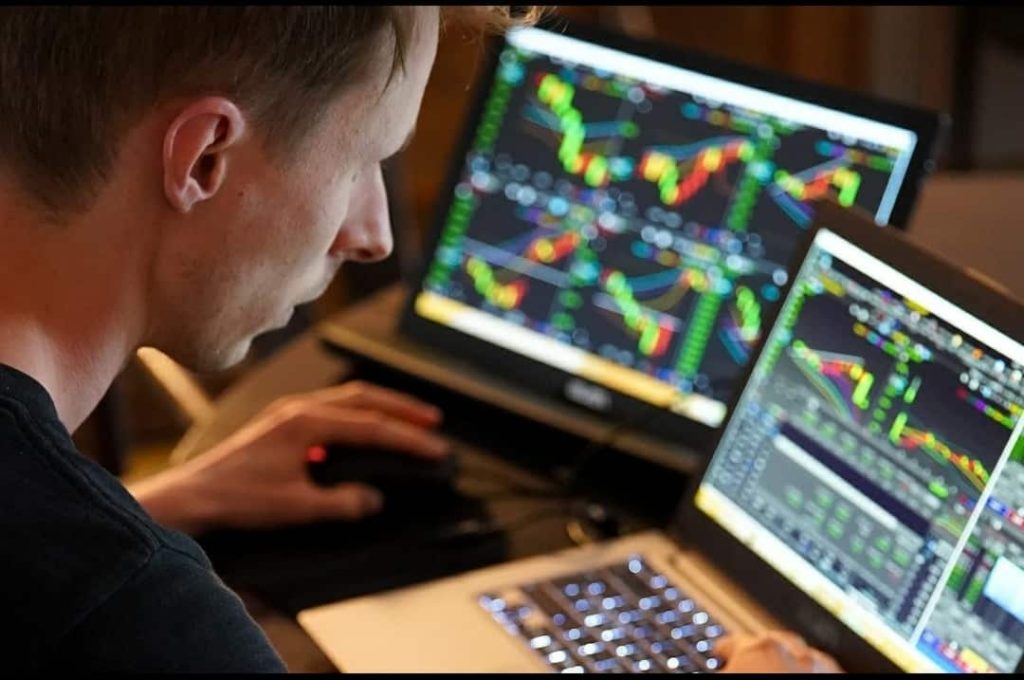Ideal for occupying your time or training to dominate the financial markets, trading simulators have many advantages. However, it is important to use it well to get the most out of it. Here are our tips for making this great tool profitable.
Summary
What is a trading simulator?
Fintech companies have been shaking up the financial sector for a few years now. Among these, online trading companies are enjoying increasing success. Indeed, the financial markets were once reserved for an elite and are now accessible to all. In the United States, for example, more than 10% of American adults would invest in equities via trading platforms, all age groups combined.
However, while the prospect of investing in the financial markets is tempting, not everyone decides to become a trader overnight. Beyond purely theoretical knowledge, some practical experience is essential. Most of the major online trading platforms therefore offer their users trading simulators.
The principle of these simulators is simple. You have a sum of virtual money at your disposal that you can invest as you see fit on the financial markets in order to train in different contexts. Admittedly, the gains made will not be real, but so will the losses. So you can have peace of mind.
What are the advantages of a trading simulator?
Using a demo account has several advantages whether you are a beginner or an experienced user. For novice traders, this obviously allows them to better understand market dynamics and the various charts or stock market indicators without taking financial risk. The use of a simulator combines perfectly with the follow-up of online courses on the subject.
For more experienced traders, trading simulators allow you to test new strategies or verify certain hypotheses. Besides, it’s also a great way to learn about new markets. One can think for example of a forex trader who would like to diversify by investing in commodities.
How to get the most out of a trading simulator?
Source: PxHere
Depending on how it is used, the trading simulator can help you hone your skills but can also be a real waste of time. Indeed, to take advantage of and learn from a simulator, it is better to train taking into account conditions close to reality. The ideal is therefore to follow reasonable assumptions. It is for example not useful to accept a very high level of risk or a very important leverage if you do not wish to run this risk when you will use cold hard cash. In addition, if you want to invest, for example, 2,000 euros in the financial markets, there is no point in training with a capital of 10,000 euros. Your conclusions will inevitably be biased. Also consider the costs you would face if you were using a real trading account (eg negative slippage or interest adjustment).
For the learning achieved to be useful later, it is therefore necessary to reproduce a context as close as possible to the real context. That said, it’s also possible to train using totally wacky strategies if you just want to pass the time or hone your instincts. In any case, keep in mind that your reactions when trading in a real environment will necessarily be different than when trading via a simulator. By taking this difference into account, you will be able to get the most out of your demo account.
Read also: What is the average salary of a trader?




